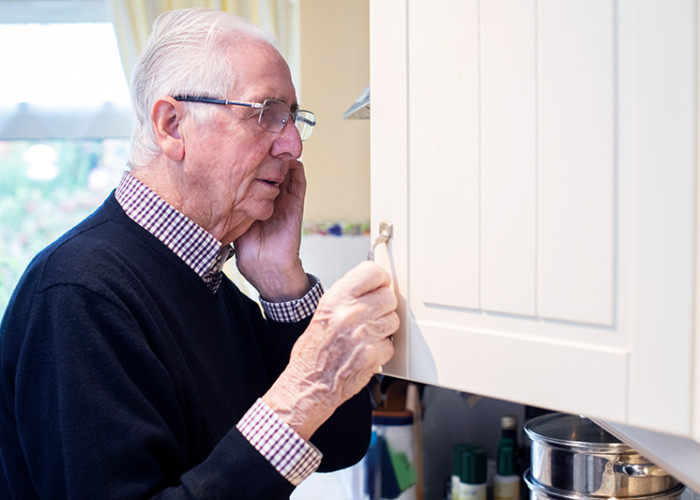Dementia
Help for When You Can’t Live Up to Your Aging Parents’ Expectations
When you can’t live up to your aging parents’ expectations, these tips can help.
In an ideal world, we could manage to perfectly compartmentalize our caregiving duties, staying with a routine that met your aging parents’ expectations, while allowing enough time to take care of our assortment of other responsibilities. But needless to say, life doesn’t follow our desired script, and conflicting needs are frequent when caring for an aging parent. Many older adults resist the need for help, while others may come to depend too heavily on an adult child, leading to unfulfilled expectations and ultimately disappointment for both parties.
Hired Hands Homecare’s aging care professionals provide the following tips to help clarify expectations and communicate successfully:
Focus on empathy. As opposed to pulling away from an older loved one whose expectations seem unrealistic, stop and empathize. Think … Read More »
Make Sure You Have These Legal Documents for Aging Parents in Place
Finalizing all of the necessary legal documents for aging parents can be a challenge, but these tips can help.
If there’s one thing we learned from the COVID pandemic, it’s to be ready for anything. Although it’s human nature to want to procrastinate, particularly as it relates to the unpleasant topic of future planning and putting together all of the necessary legal documents for aging parents, now is the best time to take stock of your loved ones’ final wishes and make sure all of the i’s are dotted and t’s are crossed, before the need arises.
Surprisingly, a number of older adults actually do begin the process of completing a will, trust, durable power of attorney, advance healthcare directive, etc., but for a variety of reasons, they never finalize these important documents. Attorney Carolyn Rosenblatt, author of … Read More »
5 Tips for Rummaging Behaviors in Dementia
Try these tips for rummaging behaviors in dementia.
Digging through boxes, cabinets, and closets, taking out assorted items from drawers, and searching repetitively through a number of items may be frustrating for the people providing care for a loved one with Alzheimer’s, but in fact these actions are fulfilling a purpose. Rummaging behaviors in dementia can provide a degree of reassurance, along with the comfort of identifying familiar items and finding purpose and meaning.
The important thing then is not to discourage rummaging, which might lead to agitation, but to more effectively manage this behavior if it becomes disruptive.
How Can You Help Someone with Dementia with Rummaging Behaviors?
These guidelines will help:
Keep rummaging to a controlled area. Assemble bins of items the senior seems especially interested in, such as keys, paperwork, a billfold, tools, gardening equipment, sewing … Read More »
How to Tell if It’s Delirium or Dementia
Learn whether a senior may be experiencing delirium or dementia, and how you can help.
Although dementia takes center stage in diagnoses for older individuals who are struggling with confusion, memory lapses, and disorientation, there’s another condition that is also common, producing similar symptoms, and most importantly, can be cured: delirium. In fact, as many as ¾ of older adults experience delirium after a surgical procedure or infection, and proper diagnosis is crucial to ensure proper treatment. So how can you tell if it’s delirium or dementia impacting someone you love?
One of the biggest differentiators in delirium is that it arises quite suddenly. It also has a tendency to cause symptoms that come and go throughout the day, as opposed to dementia’s slow, steady, ongoing, and rather predictable progression. For example, a person with delirium may struggle … Read More »
Dementia and Incontinence: 7 Tips to Help
If dementia and incontinence are causing challenges for someone you love, these tips can help.
Dementia care necessitates both compassion and creativity to deal with a number of complex behaviors and effects, and that’s particularly true when someone is experiencing both dementia and incontinence. Unfortunately, incontinence occurs frequently in Alzheimer’s as well as other forms of dementia. These tried-and-true approaches from our experts in home care in Marin and the surrounding areas can help decrease the impact of incontinence and prevent an escalation of emotions in someone you love with Alzheimer’s.
Choose your words very carefully. Rather than making reference to incontinence products as “diapers,” for example, call them “briefs” or “pull-up underwear.” Nonetheless, take the cue from your senior loved one; if she or he chooses to utilize the word “diapers” and seems more comfortable with that, then … Read More »
5 Ways to Calm Agitation in Alzheimer’s
Agitation in Alzheimer’s is common but can be eased with these tips.
Agitation in Alzheimer’s is one of the more difficult effects a senior may experience, and it can be incredibly hard for family members to manage. The key is in taking steps to handle agitation before it’s felt and expressed by the senior, which involves keeping track of what has brought about these feelings in the past, and creating a home environment in which those triggers are removed or minimized. These strategies can help:
Designate an area of retreat. When life begins to get stressful, having a specially created area for a senior loved one to go to de-stress can work wonders in restoring calm. This could be a separate room, or merely a comfortable corner with several soothing activities easily available, quiet music, a calming scent to … Read More »
Senior Finances: Help Prepare for Future Needs Now
Get a grip on senior finances and plan for future needs today with these tips.
The good news is we’re now living longer than ever before, with upwards of one in three older adults living until age 90 and beyond. The bad news, however, is that retirement planning for today’s seniors often didn’t take into consideration such longevity, leading to a strain on senior finances in later years.
So, what happens if your parents outlive their financial resources? As part of the sandwich generation, making their own retirement plans while still covering expenses for your own children, you may find yourself in need of supporting your aging parents as well. As a matter of fact, a recent survey by AgeUp shows that:
Nearly three out of four participants believe that at least one of their parents will live longer … Read More »
How to Approach Money Management Issues With Seniors
Money management issues with seniors need to be addressed tactfully and with sensitivity.
Among the most difficult obstacles for older adults is recognizing the need for help with financial matters. Finances are both extremely personal and a representation of your autonomy, and adult children specifically can often be met with opposition when stepping into this arena when suspecting money management issues with seniors.
However, for a number of reasons, including the ever-increasing incidence of senior scams and cognitive decline, it’s essential to make sure that the financial assets our senior loved ones have acquired through the years are safeguarded, and that bills are paid correctly and on time. It’s an issue that needs to be taken care of delicately and with diplomacy. Try these strategies for an easy transition to assisting a loved one with monetary management:
The introductory … Read More »
Tips on How to Help Someone With Alzheimer’s Through Reminiscence Therapy
Discover how to help someone with Alzheimer’s in a simple and unique way: reminiscence therapy.
Did you ever experience that jolt of a past memory that immediately pops to the front of your mind, perhaps through a scent, a song, or a picture? For those with dementia, the power of long-term memories is especially impactful, as short-term memory becomes weaker. And if you’re looking for ideas on how to help someone with Alzheimer’s, tapping into this idea is a great place to start. In fact, it’s become a growing trend in creative Alzheimer’s care: reminiscence therapy.
One extreme example is the transformation of a 9,000-sqft building in Chula Vista, California. The building is now an interactive 1950s town, including storefronts like a diner, a movie theater, and a healthcare clinic, all operating just as they would have been … Read More »
Women and Alzheimer’s: Why the Risk Is So Much Greater and How to Help
Understand the trend between women and Alzheimer’s and discover how you can help someone you love who is battling the disease.
Researchers are finally beginning to get a grip on the imbalance between Alzheimer’s diagnoses in women and men. Currently, as many as 2/3 of those with Alzheimer’s in the U.S. are female. As scientists begin to understand the particular nuances behind the increasing trend of women and Alzheimer’s, we can begin to address the problem and find solutions.
According to the Alzheimer’s Association’s Director of Scientific Engagement, Rebecca Edelmayer, “Women are at the epicenter of Alzheimer’s disease as both persons living with the disease and as caregivers of those with dementia. Over the last three years, the Alzheimer’s Association has invested $3.2 million into 14 projects looking at sex differences for the disease and some of the … Read More »

















